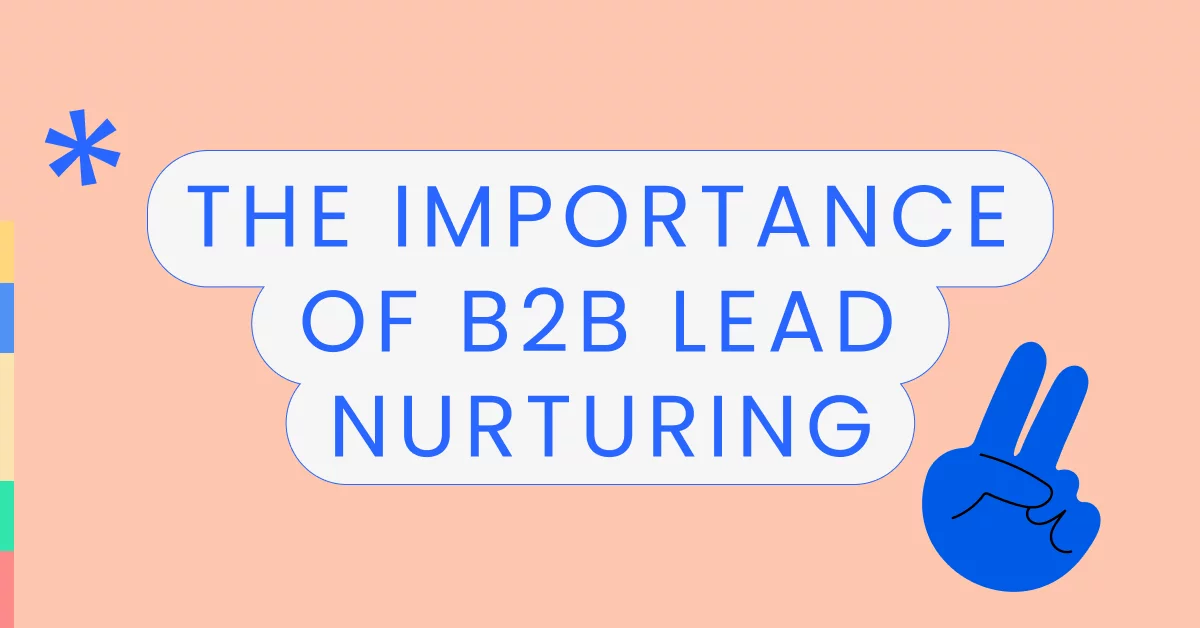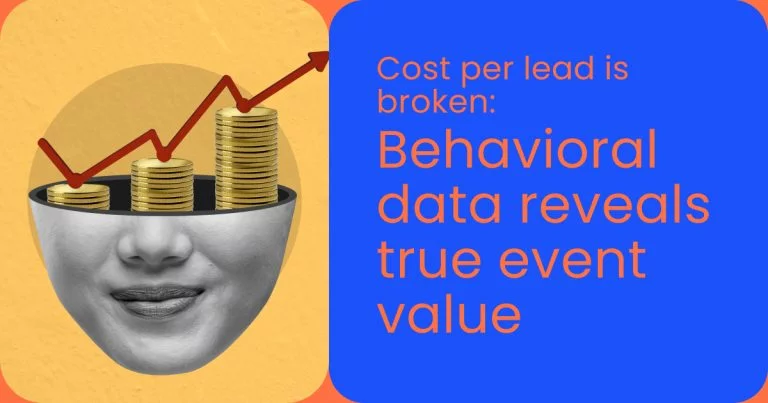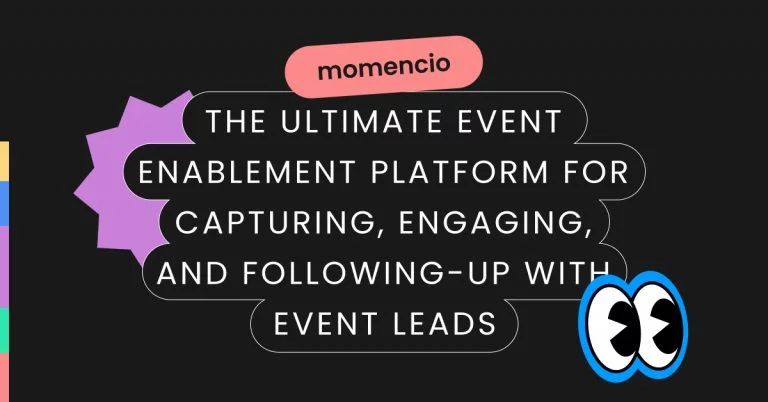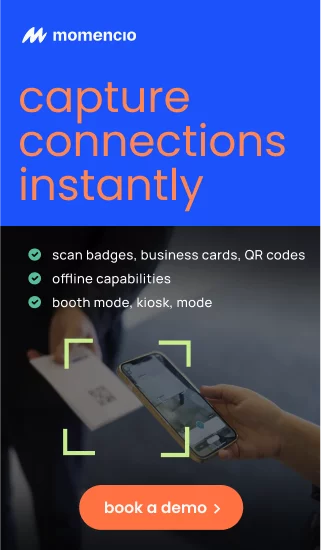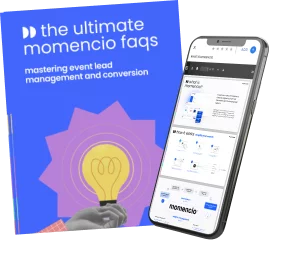The road to converting a lead into a customer can be long and challenging, especially if you’re in the B2B business domain. The number of decision-makers actually makes a significant difference in B2B. A higher number of decision-makers complicates and elongates the conversion process. This is where B2B lead nurturing becomes an unavoidable component of sales strategy.
It helps build meaningful relations with potential customers, which increases your conversions.
That’s the reason around 35% of surveyed B2B marketers have established a lead nurturing strategy.
Let’s delve into the details of B2B lead nurturing to explore its significance for any business.
TL;DR: B2B lead nurturing is essential for turning prospects into clients. By delivering personalized content, using data-driven follow-ups, and aligning marketing and sales efforts, businesses can guide leads through the buyer’s journey and increase conversion rates.
What is lead nurturing?
Lead nurturing in B2B refers to building relationships with potential customers or “leads” over time. It involves engaging with the lead at various sales funnel stages and converting them into returning customers.
When you actively communicate with your prospects throughout the sales journey, you can gain their trust and build lasting relationships. Lead nurturing primarily aims to help you do efficient and quality lead capture.
Lead nurturing is essential for B2B and B2C businesses, but the former needs it more as the sales cycle in B2B businesses is long and complex. These lead nurturing campaigns help you position yourself as an expert who can be trusted, increasing your chances of closing deals.
Benefits of B2B lead nurturing for sales
B2B lead nurturing can benefit your business in various ways and help you stay ahead of your competitors. So, if you’re wondering, “Why is lead nurturing important?” let’s explore it in detail;
1. Increase your brand awareness
B2B lead nurturing helps increase brand awareness by consistently engaging with potential customers and providing them with valuable information. When you focus on nurturing leads, you can establish your brand as a trusted business in your industry. This builds credibility and increases the chances of prospects choosing your company when they are ready to make a purchasing decision.
In B2B industry, about 95% of businesses remain out-of-market, according to an Ehrenberg-Bass report. So, when they return for a service or product, your brand recognition should grab them in the early stage. With higher brand awareness, your business is likely to be pre-selected for such buyers.
This is precisely what Prof. John Dawes states,
“There are not that many business customers that will say, ‘You know what, I am comfortable signing a contract with a business that I have hardly ever heard of before.’”
For instance, you run a software development business and offer efficient CRM solutions. You can nurture your leads by providing them with up-to-date information about CRM through blogs, social media posts, emails, webinars, etc. This will position you as an expert in your field, so you can increase your brand awareness and stay top-of-mind of prospects.
2. Allows you to create targeted campaigns
You can also use lead nurturing B2B to create targeted lead nurturing campaigns tailored to the specific interests of every business.
You can segment your leads based on various criteria, such as industry, company size, or job role. Once you have the desired data, you can send personalized content and messages to leads that resonate with each segment.
In B2B, there’s a significant gap between two purchases of the same product, especially in software, banking, and telecom-like industries. For instance, B2B clients of banks might keep their bank the same every week, month, or even for years. It would be best if you didn’t consume your marketing efforts for these prospects in such cases. Instead, it would be best if you targeted the decision-makers in the business who are in the thought process of finalizing the sale.
For instance, if a business is searching for ‘best event lead capture apps,’ it might be in the thought process. In contrast, if they’re searching for ‘momencio vs. iCapture,’ they are more likely to purchase. Then, identify those in the decision-making power and target them.
You can nurture both, but your campaign and marketing strategy should be crafted according to their position in the funnel.
This targeted approach increases the effectiveness of your campaigns and helps you build better relationships with your target audience. Resultantly, you see your overall sales increase. A study reveals that 60% of customers become repeat customers after a previous personalized engagement.
3. Determine customers’ pain points
B2B lead nurturing allows you to gather valuable information about your potential customers, including their pain points and challenges. It enables you to engage with leads and listen to their concerns. So, you can gain insights into their specific needs and tailor your solutions accordingly.
In B2B, customers usually have five types of pain points.
- Productivity
- Finance
- Process
- Workforce
- Support
Understanding your customer’s pain points lets you position your products or services as the ideal solution to their problems. For instance, if your client offers delivery services in Chicago, high traffic disrupts their operations. Your client needs help with a ‘Process’ related pain point here. So, create software that shows real-time traffic with the most desirable delivery routes and timing.
You can hit their pain points during your sales process, pushing them to make a purchase. According to Invespcro, nurtured leads make 47% larger purchases than non-nurtured leads.
4. Saves time and reduce costs
Another benefit of lead nurturing is that it significantly helps you save time and reduce overall costs. By listening to buyers’ concerns and addressing their issues throughout their buying journey, you can quickly reduce the need for lengthy sales processes. This saves time for the sales team and the leads, as they are already equipped with the necessary knowledge to make informed decisions.
Additionally, lead nurturing also frees you from traditional marketing techniques, reducing your marketing spend. You no longer have to rely on print advertising and can use digital marketing methods. For example, you can do content and email marketing on digital platforms that generate more leads without spending thousands of bucks.
5. Aids in generating revenue from existing customers
With the help of lead nurturing B2B, you can also leverage your existing customers to purchase from you more often. This results in an overall increase in your revenue.
In B2C, customers are more concerned about quality and purchase experience. Meanwhile, in B2B, every business is looking to build long-term, meaningful relationships. You’ll enjoy much higher sales if you’re successful at cracking the recipe for developing such relationships. You can increase upsell and resell opportunities to those customers by sending them personalized discount plans or encouraging them to buy upgrades.
Conclusion
B2B lead nurturing is crucial for every business as it allows you to save time, reduce marketing costs, and boost your overall KPIs. Not only this, but you can also use lead nurturing to increase your click-through rates and increase brand awareness. However, if you need to learn how to nurture and capture high-potential leads, momencio has you covered.
At momencio, we can help you build a unique lead capture strategy, and rest assured that you spend your money on the right prospects. It doesn’t matter to which industry you belong; we help you nurture quality leads. So, don’t wait; reach out to us now to take your business on the road to ultimate success!

